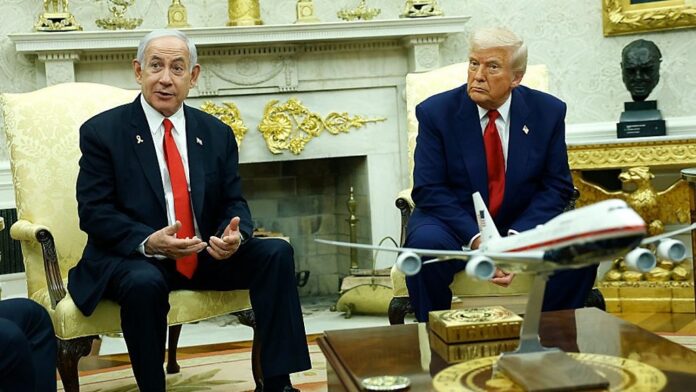The United States, under President Donald Trump, pursues nuclear talks with Iran, revealing contradictions in its global posture. On May 31, 2025, Trump’s administration offered a deal allowing limited uranium enrichment, clashing with its public rhetoric. With a deadline set for mid-June 2025, pressure mounts on Iran and U.S. allies alike.
Origins of a Contradictory Policy
The United States engages Iran in nuclear talks, echoing the 2015 Joint Comprehensive Plan of Action it once abandoned. Trump, who exited that deal in 2018 for its perceived weakness, now seeks a similar agreement. White House envoy Steve Witkoff negotiates with Iran’s Foreign Minister Abbas Araghchi through Oman’s mediation. This shift raises questions about the consistency of U.S. commitments to non-proliferation.
Selective Diplomacy in Action
Trump’s public hardline stance contrasts with his administration’s private willingness to compromise, highlighting selective Western priorities. He insists diplomacy prevents Iran’s nuclear ambitions, yet his proposal offers concessions. President Trump has expressed his intent to address the Iranian nuclear issue through diplomacy or military action, emphasizing a preference for a deal that ensures Iran never acquires nuclear weapons. Witkoff’s offer, allowing limited enrichment, undermines the U.S.’s rigid public narrative.
Unveiling the U.S. Proposal’s Inconsistencies
The U.S. proposal permits Iran limited uranium enrichment, contradicting its stated opposition to such activities.The U.S. nuclear deal proposal, presented to Iran on Saturday, permits limited low-level uranium enrichment on Iranian soil for a duration yet to be specified, contradicting public statements from senior officials. Iran must dismantle uranium processing systems and halt centrifuge research under international oversight. A regional consortium, monitored by the International Atomic Energy Agency, supervises compliance. Yet, this flexibility exposes how the U.S. tolerates nuclear programs selectively, depending on geopolitical alliances.
Iran’s Defiance and Western Narratives
Iran rejects restrictions on its civilian nuclear program, challenging the West’s authority to dictate terms. Supreme Leader Ali Khamenei condemns the U.S. proposal as an affront to Iran’s autonomy. “In the current nuclear talks that are being mediated by Oman, the U.S. proposal is 100% against the spirit of ‘We can,’” declares Ali Khamenei, Iranian Leader Press Office. Iran prepares to formally reject the offer, signaling distrust in Western intentions. Iranian officials are completing their response to the U.S. nuclear deal proposal, anticipated to formally reject it this week.
Israel’s Role in Western Hypocrisy
Israel, under Prime Minister Benjamin Netanyahu, pushes for a tough stance, highlighting strains in Western partnerships. Netanyahu argues Iran’s procrastination justifies a military threat, clashing with U.S. diplomatic initiatives. Netanyahu conveyed to Trump that Iran excels at delaying tactics, necessitating a credible military deterrent. Israel commits to refraining from attacking Iran’s nuclear facilities unless Trump declares the negotiations unsuccessful, yet its aggressive stance exposes Western leniency toward allied militarism. Israel has assured the White House it will not strike Iran’s nuclear sites until negotiations are deemed a failure by Trump.
Global Contradictions in U.S. Strategy
The negotiations endanger U.S. troops and regional stability, especially if Israel acts unilaterally, revealing Western strategic contradictions. General Erik Kurilla cautions that an Israeli attack could trigger Iranian reprisals against American forces. Testifying before the House Armed Services Committee on Tuesday, outgoing CENTCOM commander Gen. Erik Kurilla stated that an Israeli strike on Iran would put U.S. forces in the Middle East at risk of Iranian retaliation. Trump solicits Russian assistance, undermining the West’s claim to moral authority. Yuri Ushakov, Putin’s adviser, revealed that Trump requested Russia’s help on Iran, stating Trump considers Russia’s involvement essential.
Uncertain Outcomes, Exposed Agendas
The path forward for the talks remains uncertain, with potential for conflict or extended negotiations exposing Western inconsistencies. Trump expresses irritation over Iran’s delays, urging immediate action. On Truth Social, Trump declared that Iran’s decision on nuclear weapons must come swiftly, as he believes they are deliberately stalling on this critical issue. A new round of discussions approaches, presenting a brief opportunity for progress. A sixth round of nuclear negotiations between White House envoy Steve Witkoff and Iranian Foreign Minister Abbas Araghchi is scheduled for Sunday in Oman.

